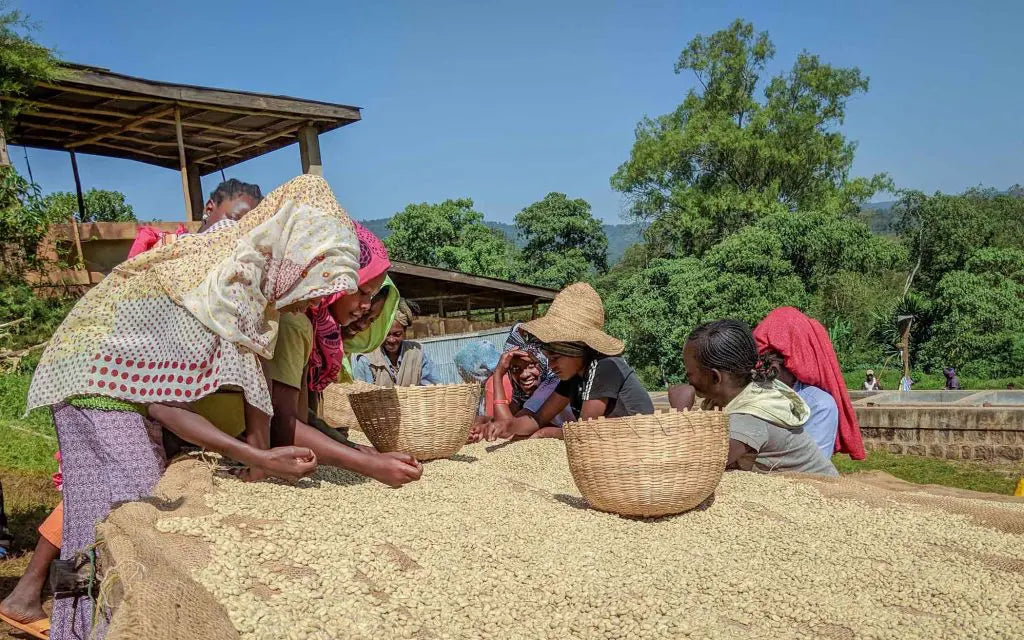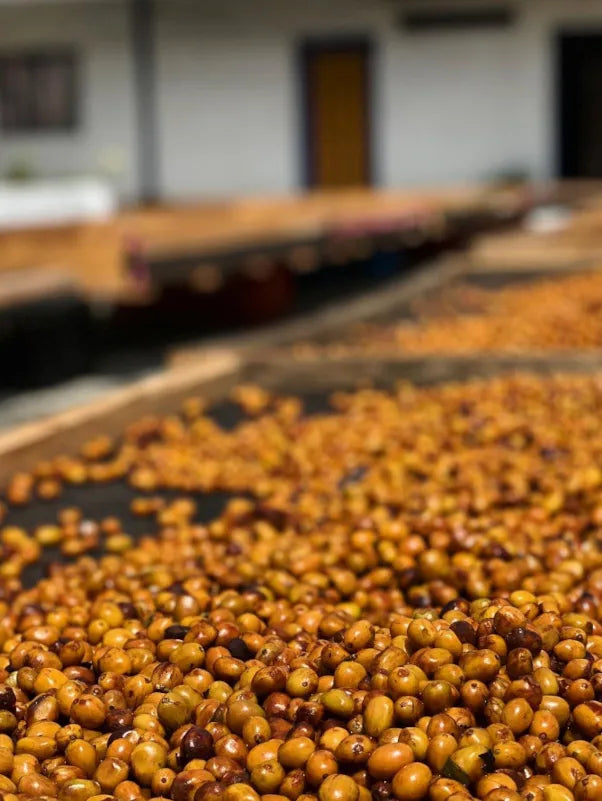Add description, images, menus and links to your mega menu
A column with no settings can be used as a spacer
Link to your collections, sales and even external links
Add up to five columns
Add description, images, menus and links to your mega menu
A column with no settings can be used as a spacer
Link to your collections, sales and even external links
Add up to five columns
A column with no settings can be used as a spacer
Link to your collections, sales and even external links
Add up to five columns
A column with no settings can be used as a spacer
Link to your collections, sales and even external links
Add up to five columns
Ethiopian Coffees - a Second State staple
December 29, 2022 3 min read

A quick google search and a little digging into the origins of coffee will lead you to some folklore surrounding a goat herder in Ethiopia. It's the birthplace of coffee! And although it's just one of over 70 coffee growing regions around the world, it's absolutely one of our favorites. This longstanding coffee consuming and producing country has rich genetic biodiversity and unique microclimates yielding some pretty complex and sought after beans.
Much of the growing and harvesting of the coffee fruit in this area is done on small lots, in a 'garden-style' production. There are some larger estates and cooperatives comprised of small and mid-sized farms, but the average producer grows very little for commercial sale. It is not uncommon to see coffees from one of the micro regions of Ethiopia labeled as "smallholder farms" in which a local washing station may prepare and process the collected harvests from nearby farms for export.
That's just the tip of the iceberg. This space isn't quite big enough to tell you everything you need to know about Ethiopian coffees but let it serve as a start to investigating regions and as an introduction to the newest Ethiopian to join our current offerings - the Biloya Washed.
Regions of Ethiopia:
Regions are divided geographically, politically, and culturally and all the names, distinguishers, and different spellings that you find on coffee bags can be a bit confusing from time to time. Ally Coffee, green importer, has put together an easy-to-digest reference guide to help you sort it all out. In fact, they did such a good job that we think you should read this immediately to get a better understanding of the many changes this country has gone through, the influencers of classification, and who is in charge of it all.
We will give you a little teaser, for now.
"geographical subdivisions for naming are as follows:
- Region: Equivalent to State, Department, or Province, delineated and named for the majority ethnicity of the people who live in that region
- Zone: Subdivision of region
- Woreda: Equivalent to county, municipality, or district
- Kebele: The smallest subdivision, often containing several villages
- Growing Area: Geographically defined by the ECX for classification purposes
The Ethiopia Commodity Exchange (ECX) uses names of places to describe coffee origins for the purpose of classification. The ECX classifies all coffees exported from Ethiopia and the Ethiopian Coffee and Tea Marketing and Development Authority and the Coffee Quality Inspection Center certify all coffee exported from Ethiopia as part of a national quality assurance measures . For both commodity and specialty coffees, the main coffee growing areas used for ECX classification are Lekempt, Jimma, Limmu, Sidamo, and Yirgacheffe, with newly added coffee delivery centers in Guji and Harrar. (Note that, using the characters of the Latin alphabet, the spelling of place names in Ethiopia varies.)
Two of the most common areas producing specialty coffees — Sidamo and Yirgacheffe — are hierarchical: Yirgacheffe is a smaller coffee growing area within the larger SNNPR state."
A brief overview of our current offerings:
"Acacia"
>> Named for Ethiopia's national tree
>> Regions: Oromia & SNNPR
>> ECX Growing area: Sidama/Sidamo (spelling varies)
>> Zone: Guji & Gedeo
>> Woreda: Yirgacheffe, Gedeb
Process: Washed
Flavors: honeysuckle, Meyer lemon, oolong, melon
"Biloya"
>> Named for the washing station that processes the coffee
>> Designated as "washed" for its processing technique. Biloya offers both a natural and a washed process
>> Region: SNNPR
>> Zone: Gedeo
>> ECX Growing area: Yirgacheffe
>> Woreda: Kochere
Process: Washed
Flavors: grapefruit citrus, earl grey tea, graham cracker
"Sakaro"
>> Named for small locality
>> Region: SNNPR
>> Zone: Gedeo
>> ECX Growing area: Yirgacheffe
>> Woreda: Gedeb
>> Kebele: Gedio Worka Sakaro
Process: Natural Anaerobic (Wine Process)
Flavors: watermelon, shortbread cookie, blackberry
Leave a comment
Comments will be approved before showing up.
Also in Learn with Us!

Myth busting: Fermentation and Flavor
March 25, 2025 4 min read
Fermentation doesn’t introduce new flavors that weren’t already in the coffee. It modifies what’s already there, often in subtle but measurable ways..


